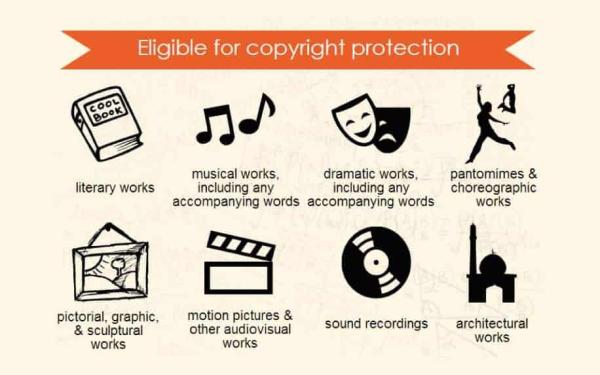Understanding Copyright - Safeguarding Creative Works | ||
 1,491 1,491  0 0  0 0 | ||
| Copyright is a legal right granted to the creator of original works of authorship, including literary, dramatic, musical, and certain other intellectual works, giving them exclusive control over the copying, distribution, and adaptation of their creations for a specific period. This protection safeguards the creator's economic interests and encourages further creativity by preventing unauthorized use and ensuring proper attribution. While some works enter the public domain after a set time, copyright generally protects the creator's work from infringement, allowing them to benefit financially and maintain control over how their work is used.
Copyright is a legal right granted to the creator of original works of authorship, including literary, dramatic, musical, and certain other intellectual works. It protects the expression of an idea, not the idea itself. This means you can't copyright a concept, but you *can* copyright the specific way that concept is expressed.
Here's a breakdown of key aspects of understanding and safeguarding creative works through copyright:What Copyright Protects:
What Copyright Doesn't Protect:
Rights Granted by Copyright:Copyright holders generally have exclusive rights to:
How to Protect Your Copyright:
Copyright Infringement:Copyright infringement occurs when someone uses a copyrighted work without permission from the copyright holder. Infringement can lead to legal action, including injunctions (court orders to stop the infringement), damages, and criminal penalties in some cases.
Fair Use:In many countries, there are exceptions to copyright infringement, commonly known as "fair use" (or similar terms in other jurisdictions). Fair use allows limited use of copyrighted material without permission for purposes such as criticism, commentary, news reporting, teaching, scholarship, or research. Determining whether a use is fair use depends on several factors, including the purpose and character of the use, the nature of the copyrighted work, the amount and substantiality of the portion used, and the effect of the use upon the potential market for or value of the copyrighted work. Tags: Copyright Copyright Protection Legal Protection | ||
| ||
| | ||
|
 3350
3350 